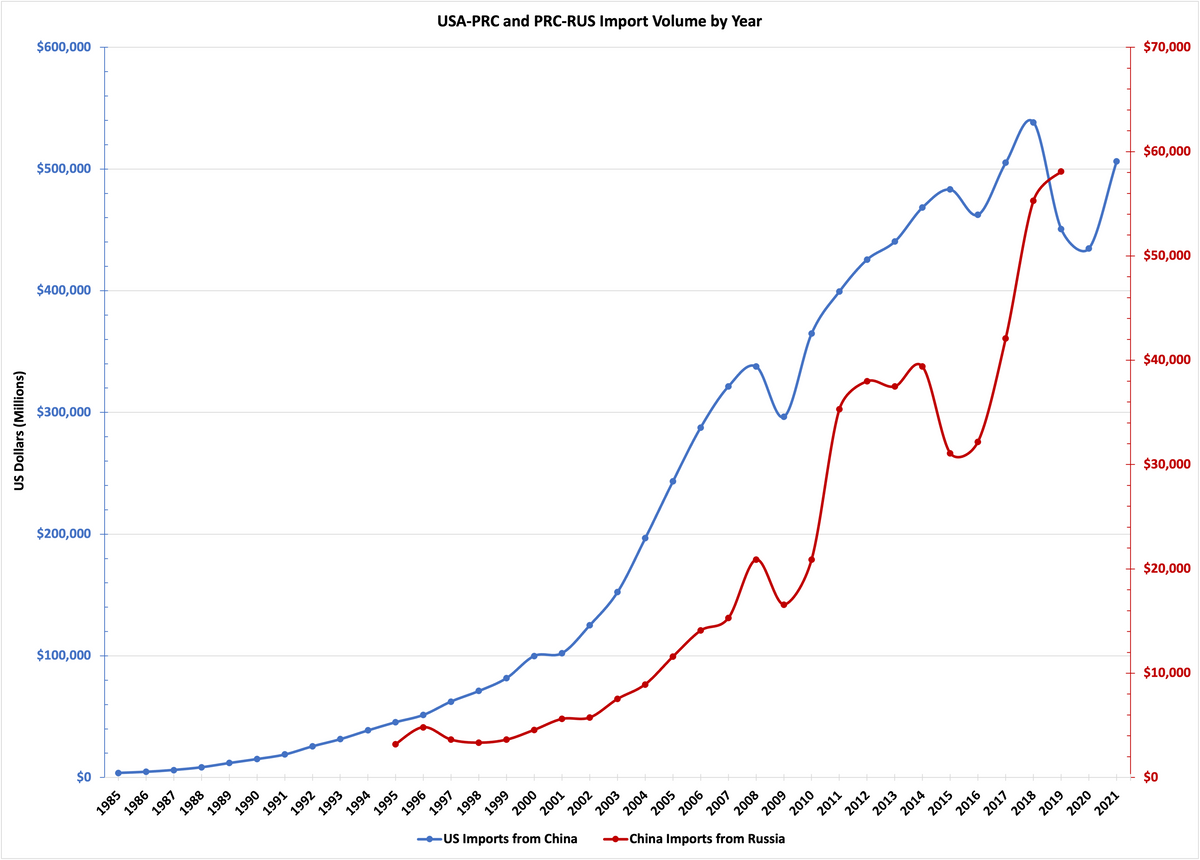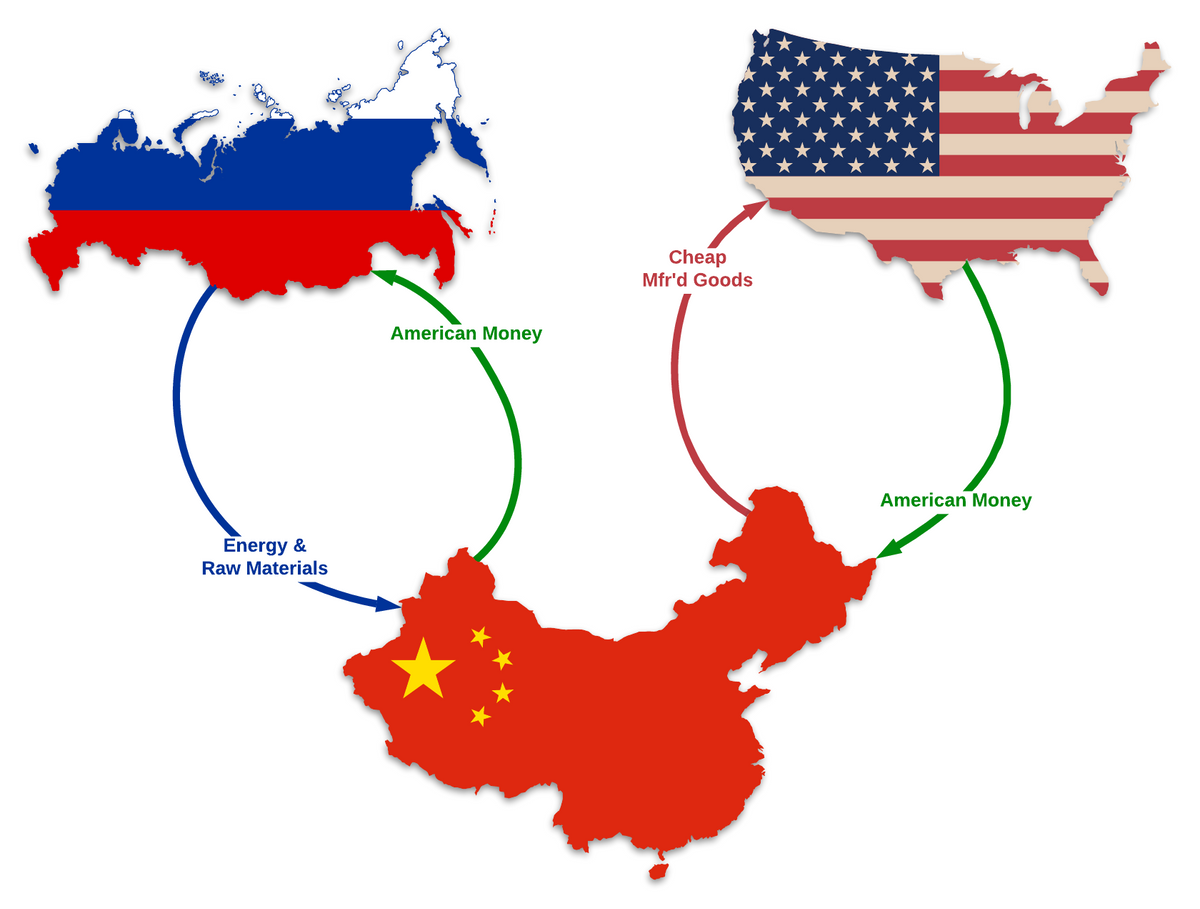Russia Precipitates a Global Reckoning
Reflections on World War in a Global Economy
On Thursday, 24 February 2022, Russia invaded Ukraine under the “leadership” of its long-reigning oligarch-thug, Vladimir Putin.
Putin has stated himself that Ukraine is just the beginning. His vision is of a Russian Third Reich, an imperial ambition to restore Russia to its destined glory, not as a Communist proletariat, but as an authoritarian plutocracy designed to concentrate increasingly scarce resources (due to the coming decades of climate and ecological collapse) in the hands of Russian oligarchs (himself very much included).
To call it a bold move would be an understatement, but this maneuver has been carefully planned and executed. Defeating Putin’s threat will require the West to do nothing less than confront the unstable world order (and attendant mythologies) it has created, leading to either a dramatic and rapid recalibration of economic and social priorities, or world war and an even longer tail of defeat and suffering than we were already destined to experience.
A Key Supplier to the Global Consumer
One of the unusual characteristics of this war is that the aggressor is a net creditor nation. It is more typical for conflicts to be instigated by debtor nations, when economic imbalances become so perilous that waging war becomes an existential imperative. Russia, however, has a healthy positive trade balance, averaging over $100 billion per year since 2005.
Russia’s positive trade balance rose over 12x from 1995 ($13.4b) to a peak of over $165 billion at least twice in the last decade. Much of the growth in Russian trading over this period comes from trade with China, which grew to become Russia’s top export destination by 2016.
A major driver in the growth of trade between Russia and China appears to be American consumer demand for manufactured goods. With the trade liberalization deals of the 1990s, consumerism became untethered from local or even national markets, leading to an ongoing frenzy of consumption in the West. US imports from China increased 130x from 1985 to 2021 (that’s 13,000%). The energy and raw materials for all of those goods must come from somewhere, and it turns out that Russia is a major supplier of both.
Graphing US imports from China alongside Chinese imports from Russia shows an unmistakable correlation between American imports of Chinese goods, and Chinese imports of energy and natural resources from Russia. In other words, our economy’s reliance on cheap manufactured goods from China also depends on China’s access to cheap energy and resources from Russia.
This is just one of many similar relationships that exist around the world, as globalization has thoroughly integrated worldwide economies and created transitive relationships between countries that are not even direct trading partners. And of course Europe remains Russia’s leading trading partner on a continental scale, its dependence on Russian energy conferring significant advantage to Putin.
Because Russia is a net creditor in global trade, it is integrated into our economies, and it becomes difficult for the world to function without it. Without Russian energy and resources, the West’s manufactured goods become more expensive and less abundant. Energy prices rise across Europe. The flapping of the butterfly’s wings ripples across the world.
Truly sanctioning Russia also means sanctioning ourselves, and at a time when supply chains are already strained from a global pandemic and inflation is on the rise, Putin is betting that our appetite for inflicting self-harm will be weak.
An Unstable System
The global trade system that emerged from the conclusion of the Uruguay Round and China’s admission to the WTO was never going to be stable, even without Putin’s interference.
The normalization of trade without normalizing labor or environmental standards has had predictably disastrous effects, causing a global race to the bottom for the cheapest labor and materials, which are naturally found in countries with the least regard for human living standards, natural resource management, and ecological sustainability. This in turn has encouraged developing economies to compete for Western business by pushing the limits of their people and resources ever closer to the brink, as multinationals forum shop for the cheapest “deals.”
Meanwhile, the Western consumer, an ocean or more away, remains happily oblivious to the human misery perpetuated by this arrangement — the people living in cages, the cancer and chemical exposure rates, the lack of fundamental rights — and hears little of the noxious environmental catastrophes — the rivers running red with chemicals, the vast toxic waste dumps, the choking air pollution — left in its wake. We simply live our lives, awash in a material abundance of cheap manufactured goods that we take for granted. Untethered from the true costs of our consumption, we can’t help ourselves from buying more.
For a lucky minority of Americans, the domestic manufacturing jobs we gave up for this happy oblivion transitioned to the “information economy” — software engineers, digital creatives, and the like — while the majority of American manufacturing labor shifted to low-paying service sector jobs, which coincidentally dole out just enough meager remuneration to manifest our basic consumer mythology on the backs of the developing world. Before this reality could set in, the September 11 attacks of 2001 injected massive military stimulus into the market, and propelled the USA into an economy of surveillance capitalism. The expanding information sector was launched on a mission to gather and control vast troves of information about their users, in order to target content and advertising to them.
As most of the country that was not involved in surveillance capitalism was being driven into service sector wage slavery, the new economy built sophisticated engagement and targeting algorithms on their data. Using their information about users, the surveillance capitalists developed targeting algorithms to identify characteristics of users and show them specific content (ads) based on identity characteristics. Later came the engagement algorithms to hook users deeper into the platform, exploiting their confirmation biases and feeding them increasingly extreme variations of their own fantasies to keep them coming back. Now the surveillance capitalists sell these abilities to any sleazy “advertiser” willing to pony up. Since the government doesn’t run these tools, it is largely shielded from accountability for them, but it enjoys easy access to all the data powering them, thanks to the Patriot Act.
As Russia would reveal to us in 2016, we had built not only a perfect surveillance-advertising machine, but also a perfect propaganda machine. Russia’s use of this machine to influence both the USA’s 2016 presidential election and the UK’s Brexit referendum is well documented, and perhaps even set a standard that has been repeatedly emulated in the years since. Four years of Donald Trump has dangerously destabilized the American political establishment and continues to test our democratic institutions to their breaking points, while the UK is beginning to face basic goods shortages as their stockpiles run out, nine months into their EU breakup. Putin showed us irrefutably how vulnerable we are to algorithmic propaganda attacks — not just from outside countries, but within our own communities — deploying them in skillful attempts to neuter two of his most potent opponents.
The backdrop to all of this is an unfolding climate catastrophe, which the American government completely ignored for four years under Trump, despite clear and alarming trends in the severity of weather events, which have finally convinced a majority (57%) of Americans to believe in anthropogenic climate change. The concomitant Holocene extinction event is now well underway and further threatens the ecological systems supporting civilization. Despite these crises, the West continues its ravenous consumption, each year withdrawing more from the planet’s resources than it can regenerate, and each year leaking more greenhouse gases into the atmosphere than the year before.
None of these trends is sustainable on its own, much less the combination of them all, and global pandemic has added a whole additional layer of challenges. Putin’s attack is thus a precision strike on the late-stage capitalism that emerged from the triumph over communism in the 1990s, which he has been preparing and meticulously executing for years.
World War in a Global Economy
For a country with a healthy trade surplus to stage an invasion in a region of the world that has been at peace for decades is an audacious move. Putin’s invasion of Ukraine strikes at the heart of our global economic framework. The most likely short-term outcome will be higher prices for energy and manufactured goods across the world, but the fundamental nature of the provocation could easily escalate to world war.
Yet it remains unclear what world war looks like in the 21st century, reliant as we are on global supply chain integration to provide even the most basic goods and services to vast quantities of consumers and industries. The world has never been at war with such tightly integrated markets — the national economies of 1914 and 1939 were incredibly isolated by comparison. What would it do to the United States to go to war with China over Russia? How would we propose to compensate for the $500 billion per year of goods and materials that we import from China? Is world war possible when economies are so complexly intertwined?
To even contemplate such a scenario forces us to face the starkest reality of late-stage capitalism, which is that it cannot last. The exploitation of foreign labor, destruction of natural and ecological resources, growing wealth inequality, the climate catastrophe and the Holocene extinction, have all pointed to this conclusion for years if not decades. A tipping point, which will force the entire system to be replaced, is inevitable. What will ensue after that tipping point is reached is anyone’s guess, but whatever order emerges from the ashes will certainly be something radically different.
Vladimir Putin knows this, and seeks to dominate the emergent world order by amassing resources and hastening the transition on his terms. To defeat him, the West must contemplate how to make the necessary transitions on its own terms. With this aggression, Putin is very much forcing our hand, taunting us to blow ourselves up in pursuit of his defeat. We all know that late-stage capitalism will end. Will it be on Vladimir Putin’s terms, or ours?

